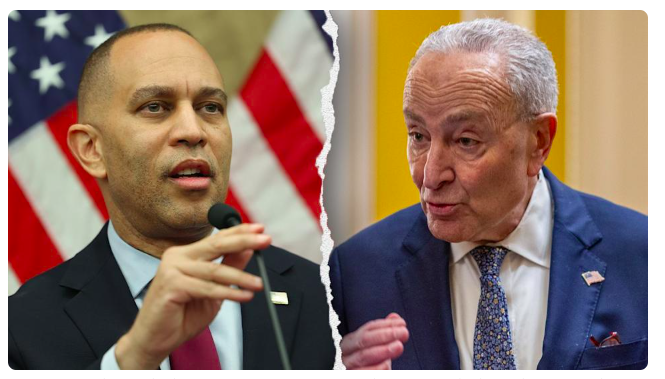In a striking departure from its traditionally supportive stance, The New York Times has published a scathing critique of the Democratic Party’s handling of the 2024 election defeat. The editorial underscores a profound disconnect between the party’s leadership and the electorate, attributing the loss to an overemphasis on progressive policies that alienated mainstream voters.
The 2024 election results were a resounding setback for Democrats, resulting in the loss of the White House, Senate, and potentially the House. This outcome has prompted introspection within the party, with many questioning the strategic decisions that led to such a comprehensive defeat.
A significant point of contention is the party’s focus on issues like abortion rights and the protection of democracy. While these topics are important to the Democratic base, they failed to resonate with a broader electorate more concerned with economic stability and immigration policies. This misalignment suggests a party out of touch with the priorities of everyday Americans.
Senator Bernie Sanders has voiced criticism of the party’s direction, highlighting an overemphasis on identity politics at the expense of addressing the economic concerns of the working class. Sanders remarked, “It’s a Democratic Party which increasingly has become a party of identity politics, rather than understanding that the vast majority of people in this country are working class.”
The editorial board of The New York Times has called for a public reckoning within the Democratic Party, urging leaders to confront the realities of their electoral failures and reconsider their strategic approach. The board emphasized the necessity for Democrats to acknowledge that their current trajectory is unsustainable and that a course correction is imperative to regain the trust of the American people.
This candid critique from a traditionally liberal publication signals a broader recognition that the Democratic Party’s recent strategies have been misguided. The party’s shift towards progressive policies, often labeled as “woke,” has not only alienated moderate and conservative voters but has also sparked internal divisions. The New York Post highlighted this sentiment, noting that even media outlets like MSNBC’s “Morning Joe” have acknowledged that “Democrats are realizing woke is broke!”
The Democratic Party’s challenges are further compounded by demographic shifts and changing political allegiances. A report by Axios revealed a significant decline in the party’s favorability, with notable losses among immigrant communities and young voters. These trends suggest that the party’s current messaging and policy priorities are failing to connect with key segments of the population.
In light of these developments, some Democratic leaders are advocating for a reassessment of the party’s platform. Rahm Emanuel, for instance, has proposed an emergency meeting to address the party’s perception and priorities, emphasizing the need for diversity in political representation to regain support from African American and Hispanic voters.
However, not all Democrats agree on the path forward. Kentucky Governor Andy Beshear has cautioned against abandoning progressive stances, particularly regarding transgender rights, arguing that the party should focus on enacting positive change for all Americans without compromising on core values.
The internal debate within the Democratic Party reflects a broader struggle to balance progressive ideals with the pragmatic need to appeal to a wider electorate. The recent critiques from prominent media outlets and party leaders underscore the urgency for Democrats to reevaluate their strategies and realign with the concerns of the American populace.
As the party navigates this period of introspection, the challenge will be to develop a cohesive platform that addresses economic anxieties, upholds essential rights, and resonates with the diverse tapestry of the American electorate. The path forward requires not only a reassessment of policies but also a renewed commitment to understanding and representing the needs of all citizens.
The Democratic Party stands at a crossroads, with the opportunity to learn from past missteps and forge a path that bridges ideological divides. Whether it can rise to this occasion will determine its relevance and success in the political landscape of the coming years.






